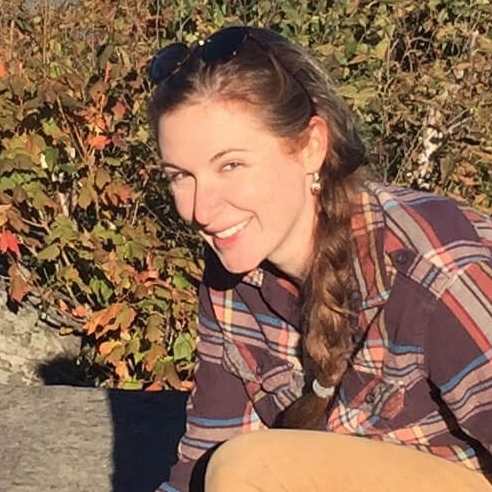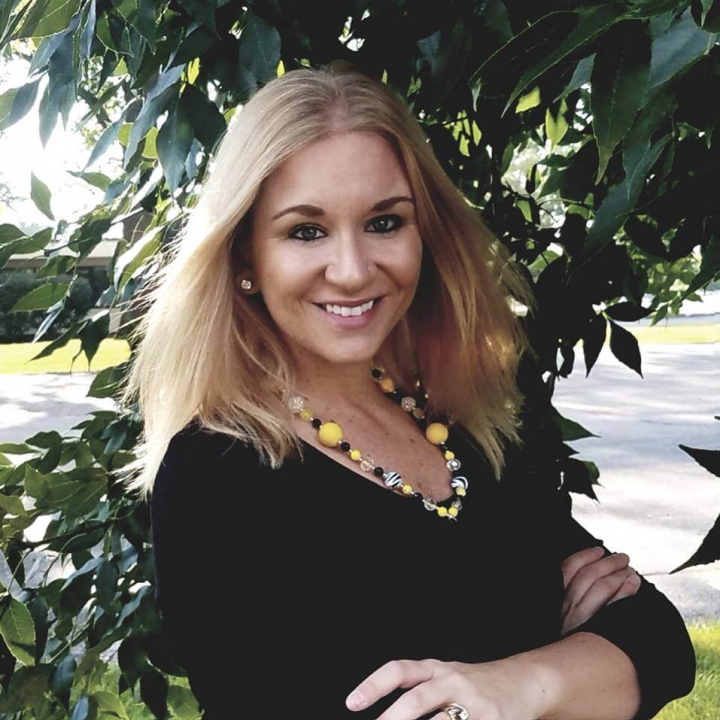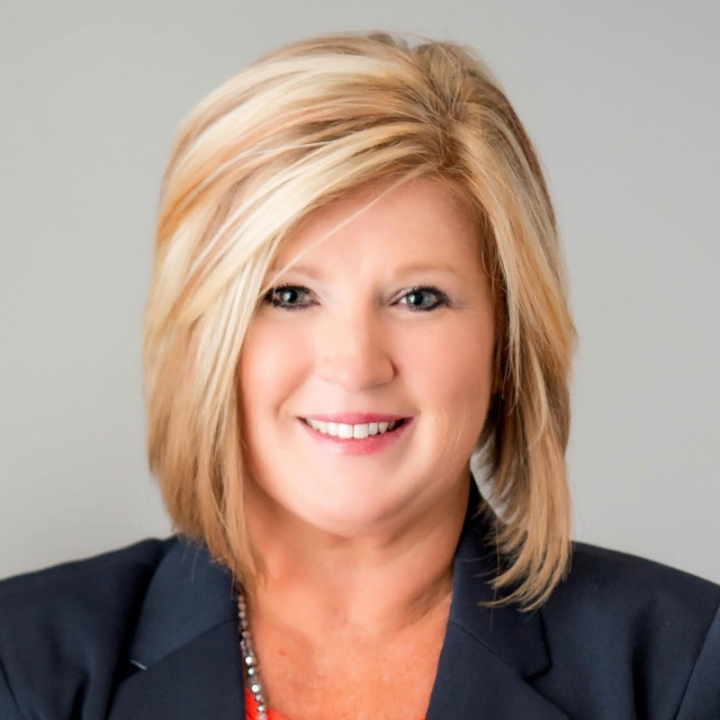Upcoming Trainings: Overdose Prevention, Naloxone Administration, & Overdose Response
In response to COVID-19 (and because of the free time it has afforded many Iowans), IHRC will host a series of trainings on overdose prevention, naloxone administration, and overdose response.
Background Information: About this Training
IHRC's Naloxone Distribution Philosophy
The Iowa Harm Reduction Coalition (IHRC) operates an Overdose Prevention & Naloxone Distribution program, which provides over 20,000 free doses of naloxone to Iowans each year (naloxone, or Narcan, is an opioid antagonist that “reverses” opioid overdose or toxicity, effectively “blocking” opioids from acting on the brain and thus stopping their ability to depress the respiratory system). Since the launch of IHRC’s program in June 2017, nearly 3,000 Iowans have reported using this naloxone to reverse an opioid overdose in the community. IHRC takes an approach to overdose prevention that emphasizes the need to get as much naloxone as possible directly into the hands of people who are most likely to experience, witness, or reverse an overdose, minimizing any potential barrier that may arise. This intervention is fundamentally different from a traditional public health approach to overdose prevention: traditional public health and grassroots community-based movements will inevitably ask different questions about overdose, and it is these questions that shape the interventions that are provided. Rather than consider, “Who is trained or licensed to distribute and administer naloxone?,” Harm Reductionists ask the questions: “Who cares the most about the outcome of an overdose?” and “Who could respond to an overdose and administer naloxone in as little time as possible?” While the answers to the first question are typically pharmacists and first responders (professionals), the answers to the second and third questions are typically the family and friends of an individual who uses drugs (laypersons).

80% of naloxone administrations in communities were completed by lay persons
Layperson Naloxone Distribution & Administration: What Does the Evidence Say?
Many professionals were initially skeptical of the ability of laypersons to deliver this medication, but a series of landmark reports and research studies have led the federal government to repeatedly declare that layperson naloxone use is both safe and effective. In a bi-annual report published by the Centers for Disease Control & Prevention (CDC), researchers found that over 80% of naloxone administrations in communities were completed by lay persons, with the majority of these individuals identifying as people who use drugs (PWUD). In this series of reports, the researchers noted that no more than 15% of naloxone administrations were conducted by first responders (including law enforcement). Other federal agencies, including SAMHSA, HHS, HRSA, and CMS, have studied the evidence and come to the same conclusions as the authors of the CDC report, while going even further to declare that if we want to turn the tide on the overdose crisis in America, decision-makers must focus resources on those programs that offer low-barrier naloxone access and that work deliberately to put naloxone into the hands of people who currently use drugs and the family and friends with whom they spend their time. Surgeon General Jerome Adams famously called for every American to obtain naloxone and learn to use it in order to be prepared to prevent a fatal overdose.
Why host this training? Why now?
IHRC routinely distributes naloxone and Narcan (naloxone is the generic name of the medication, formulated as a vial and intramuscular syringe, while Narcan is a brand name medication that is available as an intra-nasal spray) directly to people who are at high risk of overdose via home deliveries, which include a one-on-one training and educational session; tele-health trainings and mail-based distribution; outreach in community settings; and a drop-in center. Yet, IHRC’s staff routinely receive inquiries and requests for naloxone training and overdose education from individuals from around the state who are seeking more formal training and education sessions. These requests are typically submitted by family members and friends of individuals who have previously experienced an overdose. They often come from direct service providers who work closely with people who use drugs and want to provide their clients with overdose prevention counselling that is appropriate, knowledgeable, and effective. Some originate within law enforcement departments, volunteer firefighters, and among emergency medical personnel: while these professionals may make up a smaller percentage of overdose reversals when compared with PWUD, their role in preventing overdose fatalities is absolutely critical and the opportunities they (will) receive to save lives with naloxone / Narcan are indisputable. For these aforementioned groups and individuals, a text message sent to a hotline, followed half of an hour later by a 15 minute naloxone administration training in their home, may not be the type of training that best suits their needs, or truly “meets them where they’re at.”

During the summer of 2020, IHRC will host 10 naloxone trainings.
The Training: Details
IHRC has previously been unable to accommodate requests for additional, large group, no-cost overdose prevention and naloxone administration trainings. However, in response to COVID-19 (and because of the free time it has afforded many Iowans), IHRC will host a series of trainings on overdose prevention, naloxone administration, and overdose response. The trainings will be held on a bi-weekly basis, alternating between weekdays and weekends, mornings, afternoons, and evenings, in order to meet the scheduling needs of a wide range of audiences. Both introductory sessions and “train the trainer” sessions will be provided. These two – three hour trainings are free, no continuing education credit (CEUs) will be provided, and there are no prerequisites for participation. As space is limited, we ask that only Iowans register to attend these sessions. Trainings must be attended in-person or during the live recording. At the completion of the training series, a final training may be posted to the IHRC website and circulated to the general public. All participants will be eligible to receive up to 1,000 free intramuscular naloxone rescue kits from IHRC. Please note that intranasal Narcan may be made available in small quantities, upon request. All naloxone and Narcan will be distributed to participants via mail. During the summer of 2020, IHRC will host 10 naloxone trainings. These trainings are scheduled to occur every 10 days and are offered on weekdays, weekends, mornings, afternoons, and evenings, with the goal being to vary the time and day of the week in an effort to make it possible for interested individuals to identify one opportunity that fits into their schedule.
Basic Training vs. Train the Trainer
Two types of training are available and more information is provided in the Training Objectives section. Please note that each of the 10 scheduled trainings will include a basic training. Only half (five) of the scheduled trainings will incorporate the Train the Trainer program. Please make note of this when selecting the desired training date.
Basic Training:
This training is a ninety-minute to two-hour session that covers the fundamentals of overdose prevention, naloxone administration, and overdose response. Two hours is allotted for this training, but please note that the training may be completed in 90 minutes depending on the number of participants. Individuals may find this session appropriate if they are seeking training in order to be able to:
- Assist a loved one in the event of an overdose;
- Understand how to improve their own overdose prevention strategies and obtain naloxone that may potentially be used by a contact to reverse their own overdose;
- Provide naloxone to a family member or close friend who uses opioids or is close to someone who is at high risk for overdose;
- Counsel a patient(s), client(s), or participant(s) on overdose prevention (potentially before prescribing Narcan via a pharmacy);
- Administer naloxone to an individual who may be experiencing an overdose within their workplace or the facilities and spaces they may come into contact with while performing their job duties (eg. workers in homeless shelters, gas station employees, public library employees, social workers).
- Obtain naloxone and be prepared to administer it in the event that they encounter a person experiencing an overdose in a public place (eg. a park, a street corner, on public transportation);
- Expand their general understanding of community-level overdose prevention programs in order to improve their work in public health, public safety, healthcare, or social services.
Full objectives for this training are listed in the following section. Please note that if you wish to complete one of the following activities post-training, you will need to participate in the “Train the Trainer” session. Content NOT addressed in the Basic Training / ONLY addressed in Train the Trainer: utilize your training to distribute naloxone at your place of employment (i.e. distribute in bulk to clients / patients), operate an overdose prevention and naloxone distribution program; provide overdose prevention & naloxone administration training to your colleagues, and/or develop a high quality overdose response plan for your employer or organization. Individuals completing this session will receive a certificate of participation.
Train the Trainer:
This training session will be offered as an add-on to the Basic Training. All individuals who wish to complete the Train the Trainer program must first complete the Basic Training module. Upon conclusion of the 90-120 minute Basic Training session, individuals who wish to participate in the Train the Trainer session will complete an additional 60-90 minutes of training. Individuals may be interested in this training if they are interested in:
- developing and implementing a naloxone distribution program in their workplace or community;
- building capacity to offer this training to their colleagues and/or within their home organization;
- dispensing free naloxone to patients or clients in their program or clinic;
- creating an effective overdose prevention program for an organization;
- establish a high-quality overdose response plan for places where you work, live, worship, etc... (an overdose response plan is a detailed, written emergency response protocol that applies to the unique context of an overdose and ensures that appropriate materials are accessible in the event of an overdose and that some individuals are well trained in responding to overdose in advance of EMT arrival and are fully prepared to assist someone following naloxone administration);
- expanding effective overdose prevention programming at the community or population level through a specific, existing professional project;
- generally advancing their knowledge on overdose and taking their understanding of naloxone and overdose response to the next level;
The goals of this additional training are to build confidence and knowledge, ensure subject-matter comprehension and readiness to distribute naloxone directly to clients or patients; solidify long-term memory of the training content, create or develop overdose-response plans, and review resources and information that will help trainers to answer any questions they may receive. Upon conclusion of this session, participants will be asked to create their own powerpoint presentation with overdose prevention and naloxone administration training content, along with a written (draft) overdose response plan for their workplace and a (draft) data collection form for naloxone distribution to their clients / patients. Training presentations, overdose response plans, and naloxone dispensing data collection forms must be submitted to the training provider no later than three (3) weeks after the date of the training. Upon review of these assignments, the training provider will provide written feedback and assign a grade of pass or fail for the content that has been developed. Those individuals receiving a failing grade will be asked to complete an additional training session. Those who complete all three assignments to a satisfactory level will receive a passing grade (trainees will be provided with a scoring rubric) and a final certificate of completion for this training.
Please note: If you are attending this training with the intent to develop a naloxone distribution program, please contact IHRC’s Executive Director, Sarah Ziegenhorn (sarah@iowaharmreductioncoalition.org), so that she may provide you with information regarding naloxone access and purchasing agreements in the United States.
Training Logistics
- IHRC will host a series of trainings on overdose prevention, naloxone administration, and overdose response.
- All trainings will be conducted via Zoom. Space is limited for each training.
- Registration is required in advance for all trainings. Registration will close 24 hours in advance of each training session.
- The trainings will be held on a bi-weekly basis, alternating between weekdays and weekends, mornings, afternoons, and evenings, in order to meet the scheduling needs of a wide range of audiences.
- Both introductory sessions and "train the trainer" sessions are provided - please refer to the schedule for dates, times, and training types.
- These trainings are free to participate in and open to the public. If you find the training beneficial, we encourage you to make a small donation to IHRC's program.
- No continuing education credit (CEUs) will be provided.
- There are no prerequisites for participation: anyone may take part in these trainings.
- As space is limited, we ask that only Iowans register to attend these sessions.
- Trainings must be attended in-person or during the live recording.
- At the completion of the training series, a final training may be posted to the IHRC website and shared with the general public.
- All participants will be eligible to receive up to 1,000 free intramuscular naloxone rescue kits from IHRC.
- Please note that intranasal Narcan may be made available in small quantities, upon request.
- All naloxone / Narcan will be distributed to training participants via USPS mail.
- There is no certification provided as a result of completing this training. However, IHRC will issue a certificate of completion to all participating individuals.
- The content of these training sessions has been developed by Dr. Christopher Buresh, Professor of Emergency Medicine at the University of Iowa Hospitals & Clinics; Dr. Joshua Radke, Assistant Professor of Emergency Medicine & Medical Toxicology at the University of Iowa Hospitals & Clinics; Sarah Ziegenhorn, IHRC Executive Director, facilitator of over 250 large group and 2,000 individual naloxone trainings, and responder to over 12 overdoses in the community setting; and a group of over three dozen individuals who have survived an overdose and/or administered naloxone. This group is confident in their expertise in this subject matter and is pleased with the excellent training they have provided to over 5,000 Iowans since 2017. Drs. Radke and Buresh are willing to place bets that this training is the best of its kind in the state of Iowa.
- More information about these training sessions may be found on this page in the sections below.
Please contact hello@iowaharmreductioncoalition.org with additional questions.
Training Content & Objectives
Basic Training: Overdose Prevention, Naloxone Administration, & Overdose Response
- Provide an overview of the physiologic and molecular bases of overdose.
- Review key research studies to understand the components of an effective overdose prevention program.
- Understand the demographic and population-level trends in fatal and non-fatal overdose.
- Learn the differences between key opioids implicated in fatal overdose, including heroin, fentanyl, morphine, methadone, and prescription pills.
- Identify the major risk factors for overdose, including situational tolerance changes, physiologic changes in tolerance, alterations in social or environmental cues, polysubstance use (including a reality-based review of common practices), and market level changes to the drug supply.
- Discuss 10 key strategies that individuals (patients, clients, PWUD) can implement in order to reduce their risk of overdose.
- Learn 5 key strategies that communities can implement in order to decrease fatal and non-fatal overdoses.
- Review the key components of emergency response, including rescue breaths.
- Obtain detailed information regarding the process of naloxone administration (intramuscular) and Narcan administration (intranasal).
- Understand the potential risks and adverse effects associated with naloxone, along with the proper mechanism for medication storage.
- Review the basics of after-care for overdose and learn to anticipate the potential needs of individuals who have experienced an overdose within the past 10 minutes, 30 minutes, 1 hour, 2-5 hours, 1 day, 2-4 days, 1-2 weeks, and 1 year.
- Discuss the regulatory environment for naloxone at the federal, state, and local levels.
- Provide an overview of key myths surrounding opioid exposure and overdose risk.
Train the Trainer
This session covers ALL objectives listed in the Basic Training. Individuals who attend this session will first attend the Basic Training and then continue onwards (as the Basic Training students exit the training) in order to gain additional education, which includes the following. Participants will be able to complete the following objectives as a result of their participation in the webinar training and independent study following the session:
- Discuss the effect and action of opioids and naloxone at a molecular, cellular, and tissue level, while providing an overview of the effect of an opioid on the central nervous system and respiratory system.
- Present the pharmacology of naloxone and various opioids utilizing multiple metaphors and analogies that are easily understood by laypersons and that accurately represent the pharmacokinetics and physiologic effects of the medications.
- Provide a comprehensive overview of all classes of overdose risk. Reference specific research studies while unpacking the nuances of each category for overdose risk.
- Provide examples of mis-information regarding overdose risk and opioid exposure, using these examples to highlight the principles of overdose physiology and bio-psycho-social risk factors.
- Present a detailed and comprehensive review of overdose prevention strategies for individuals (PWUD) and for communities.
- Present the ICARE overdose response protocol in a clear and concise fashion. Address key misconceptions for overdose response.
- Review the process for administering naloxone and narcan, highlighting key misconceptions.
- Be familiar with multiple overdose scenarios and understand the factors that influenced the unique situational outcomes.
- Write a detailed overdose response plan for an employer or organization. The overdose response plan should include the storage locations for naloxone, the overdose response kit location and contents (supporting physical materials), a decision tree with suggested actions based on the overdose presentation, a list of materials and resources available in the post-overdose setting, a staff work-flow and shift hand-off process in the event of an overdose; and an overdose response planning worksheet for use with individual clients or patients.
- Write a detailed overdose prevention and naloxone administration training using slides (powerpoint, google slides). Incorporate two previously unknown reports or research studies into the presentation. Include verbal comments for each slide in the "notes" section.
- Create a naloxone distribution data collection form that includes questions to screen for overdose risk factors and assess prevention strategies available to the individual or client, along with recent overdose reversals, demographic information, and amount of naloxone received.
Training Dates & Registration
On dates where BOTH a Basic Training and a Train the Trainer session is offered, individuals will use the same registration link regardless of which training they plan to attend. If you register for a date when two training options are offered, you will be contacted directly in advance of the session and asked to indicate your preference for the 2-hour basic training OR the 3-hour train the trainer session. Please note that if a training indicates ONLY “Overdose Prevention, Naloxone Administration, & Overdose Response,” this means that the training is two hours long and ONLY the basic training is available that day. Please contact hello@
Friday, August 7, 1:00 - 4:00pm CST
Overdose Prevention, Naloxone Administration, & Overdose Response (1:00 – ~3:00) AND Train the Trainer (1:00 – 4:00)
Monday, August 17, 9:00 AM - 12:00 PM CT
Overdose Prevention, Naloxone Administration, & Overdose Response (9:00am – ~10:00am) AND Train the Trainer (9:00am – 12:00pm)
Thursday, August 27, 1:00 - 4:00pm CST
Overdose Prevention, Naloxone Administration, & Overdose Response (1:00pm – ~2:00pm) AND Train the Trainer (1:00pm – 4:00pm)






